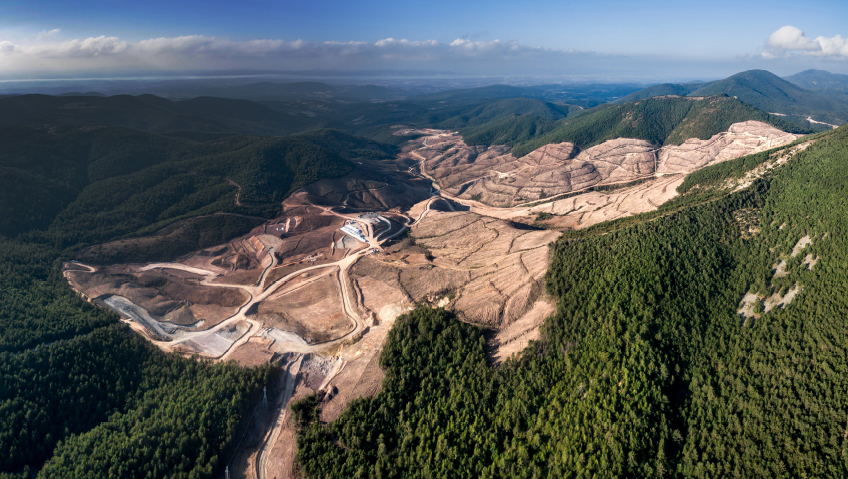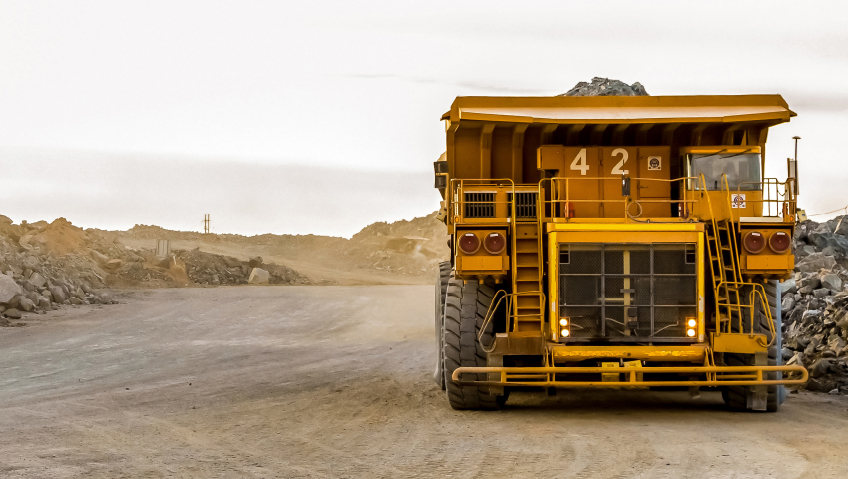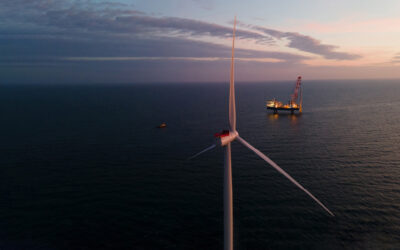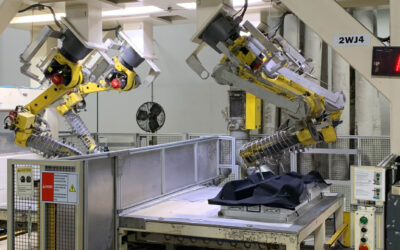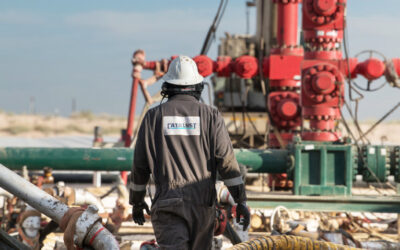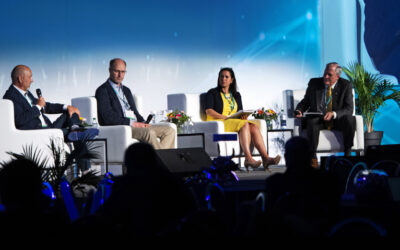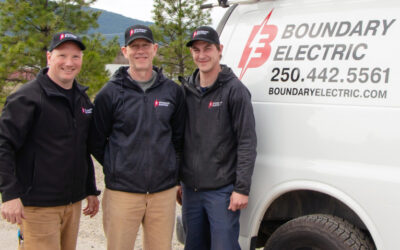Canadian companies BESTECH and FROSKR provide engineering and consulting services—with special attention paid to sustainability and environmental impact—to North American mining operations. The story of the companies begins with BESTECH, incorporated in 1995 by founder Marc Boudreau.
As an electrical engineer, Boudreau wanted to work under his own power in the mining industry and did not wish to continue relying on out-of-town experts for process control and automation. He saw an opportunity to create a niche business in northern Ontario to offer process control and more to the mining industry. He also wanted to create great jobs that would live in the community and provide exemplary engineering services to the market.
In his time as CEO, Boudreau won many awards and distinctions for the company’s innovation and now serves as one of the business’ visionary leaders. FROSKR, a sister organization to BESTECH, was born through an association between Boudreau and FROSKR President Kati McCartney. Having built the BESTECH business on relationships and communities within mining, FROSKR was founded in early 2020 as an environmental consulting and technology firm to supplement the services of its partner business.
McCartney cites the unique symbiotic relationship between the two, which allows the combined businesses to show clients a great deal of vision with mining projects. This is thanks to the roles played in permitting, consulting, planning, and proprietary technology for both mining outfits and various other companies outside of the mining sector.
BESTECH Vice President of mining transformation, Samantha Espley, details how BESTECH integrates technologies with automation, process control and wireless communication to bring cost savings and safe solutions into mining operations. An example of this is the control of ventilation flows by directing air to only areas of operation. This saves energy in not sending air to inactive areas and, in turn, millions of dollars compared to the less energy-efficient practices of the past.
Another example of integrated solutions is FROSKR’s HyLoENVIRO real-time environmental monitoring system, used in Sudbury for over 17 years. Mining companies use the system to remotely monitor air quality and manage smelting processes to meet production targets while preventing harm to the environment and meeting legislative requirements, including transparent data sharing and the licence to operate.
In addition to its technology, BESTECH has also recently developed a new mining team with mining engineers, geologists, and geotechnical engineers. This team, a mix of veterans and new talent, is already inventing keen new mine designs and new mining methods. The current workplace focus is shifting toward electrification—removing diesel technology—and working with original equipment manufacturers and collaborators to help mining steer towards greater sustainability.
Espley feels that the mining industry can be prone to ‘siloed’ thinking and that many companies need to think more broadly about the mining process and the environment. This thinking also includes rehabilitating mining land to its original form. Espley adds that one can design much smarter with the Whole Mine™ approach. This can include processes like design electrification, waste reduction, and working with local communities in taking a holistic approach to mining solutions.
To this end, BESTECH and FROSKR aim to further apply Industry 4.0 technologies to mining and designing mines in a smarter fashion, referred to as Mining 4.0. The company seeks to achieve environmental and social responsibility, especially with the industry already moving in that direction. This includes assessing greenhouse gas emissions and lowering carbon footprints. McCartney adds that FROSKR and BESTECH are all about advancing any client’s environmental stewardship and sustainability goals and the protection of the natural environment.
Climate change and its relation to mining is an important topic to both companies, as each wants to encourage a net positive environmental impact. McCartney observes that much of media coverage around the industry is concerned about the adverse environmental effects of traditional practices like oil spills, smog, or acid rain, so it is crucial for those outside the industry looking in to understand the rise in demand for material that can only be achieved through mining.
Even initiatives to solve climate change involve materials made by mining, so extraction cannot continue in archaic or irresponsible ways. Rapid technology development is needed.
Major players in a new energy economy are helping to find ways to extract minerals like nickel and work with communities to find more efficient and sustainable mining methods. Work is also being done to source critical mining strategies from around the province of Ontario to offer manufacturing closer to home and not to take advantage of globally disadvantaged areas.
BESTECH and FROSKR are eager to welcome employees who align with the culture and encourage multidisciplinary growth and training. “We are driven to building long-standing relationships,” McCartney says of both clients and employees. “We grow because of who we attract and who we work with.”
In the past few years, both companies’ projects and portfolios have grown and diversified, respectively, concentrating on mining partnerships. One such collaboration saw the companies invited to support Mine Connect in Nevada, a cross-border collaboration of mining firms in an evolving mining jurisdiction. Other opportunities include working with North American companies to design-build cobalt refining process plants across two jurisdictions, as well as a liquid sulfur dioxide plant in Timmins, Ontario. Growth is also measured by the company’s ability to recruit and retain top talent and position itself in local communities, especially Indigenous communities.
With some contracts spanning seventeen years of company history, BESTECH and FROSKR are not so much interested in gaining projects as they are in fostering relationships and positive conversations around mining. “Mining is invasive and changes the environment,” McCartney explains, “but supporting clients involves adopting and understanding responsible mining practices and resource sharing with clients.”
Espley feels that mining has an aura of being an industry that is slow to change, but it is, in fact, in the middle of acceleration in terms of accepting new technology. Currently, the sector is at something of a crossroads as underground mining is embracing wireless technology, allowing operations to be done more cheaply, safely, and sustainably. Mining clients have also begun to immediately ask for technology roadmaps to follow these trends.
BESTECH and FROSKR are expanding work into Nevada currently and will also ramp up a focus on diversity, tapping into the expertise of women in the mining industry to fill in gaps in an already-skilled workforce. Throughout the year and beyond, the companies will continue to provide support with innovative mining approaches, as both companies look to define ways to push a step-change in all areas, especially the environment.
To meet global demand, mining must be done in an environmentally responsible manner. The collective vision of BESTECH and FROSKR is sustainability for the environment and future generations, with mining needing to step up to leave a net-positive impact and use the Whole Mine™ approach. McCartney observes that mining needs to adapt to meet the effects of its society and the demand it faces. Technology plays a crucial role in reclaiming mining from environmentally unsustainable practices, but it cannot be done in a vacuum. “The future of mining is collaborative. There is no other way forward.”

